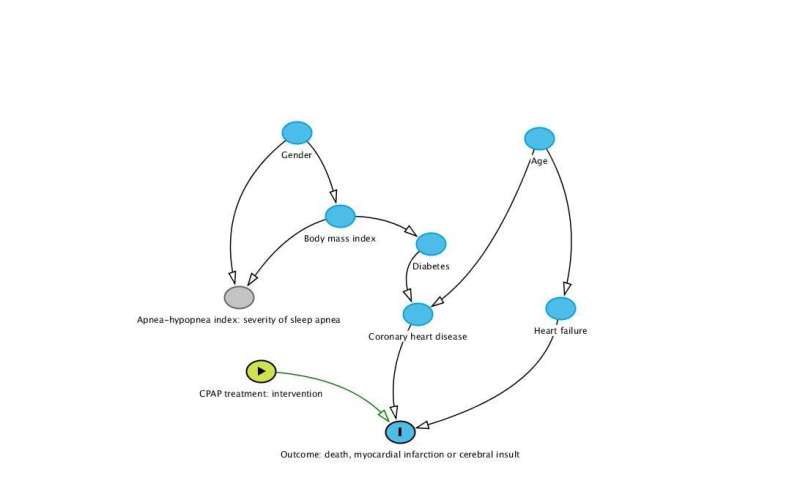Artificial intelligence predicts treatment effectiveness

How can a doctor predict the treatment outcome of an individual patient? Traditionally, the effectiveness of medical treatments is studied by randomised trials where patients are randomly divided into two groups: one of the groups is given treatment, and the other a placebo. Is this really the only reliable way to evaluate treatment effectiveness, or could something be done differently? How can the effectiveness of a treatment method be evaluated in practice? Could some patients benefit from a treatment that does not cause a response in others?
A new method developed by Finnish researchers at the University of Eastern Finland, Kuopio University Hospital and Aalto University now provides answers to these questions. Using modelling, the method makes it possible to compare different treatment alternatives and to identify patients who will benefit from treatment. Relying on artificial intelligence, the method is based on causal Bayesian networks.
According to Professor Emeritus Olli-Pekka Ryynänen from the University of Eastern Finland, the method opens up new and significant avenues for the development of medical research. "We can now predict the treatment outcome in individual patients and to evaluate existing and new treatment methods. With this method, it is also possible to replace some randomised trials with modelling," Professor Emeritus Ryynänen says.
In the newly published study, the researchers used the method to evaluate treatment effectiveness in obstructive sleep apnoea; however, the method can also be applied to other treatments. The study showed that in patients with sleep apnoea, the continuous positive airway pressure (CPAP) treatment reduced mortality and the occurrence of myocardial infarctions and cerebrovascular insults by five percent in the long term. For patients with heart conditions, CPAP was less beneficial.
More information: Olli-Pekka Ryynänen et al. Bayesian Network Model to Evaluate the Effectiveness of Continuous Positive Airway Pressure Treatment of Sleep Apnea, Healthcare Informatics Research (2018). DOI: 10.4258/hir.2018.24.4.346


















